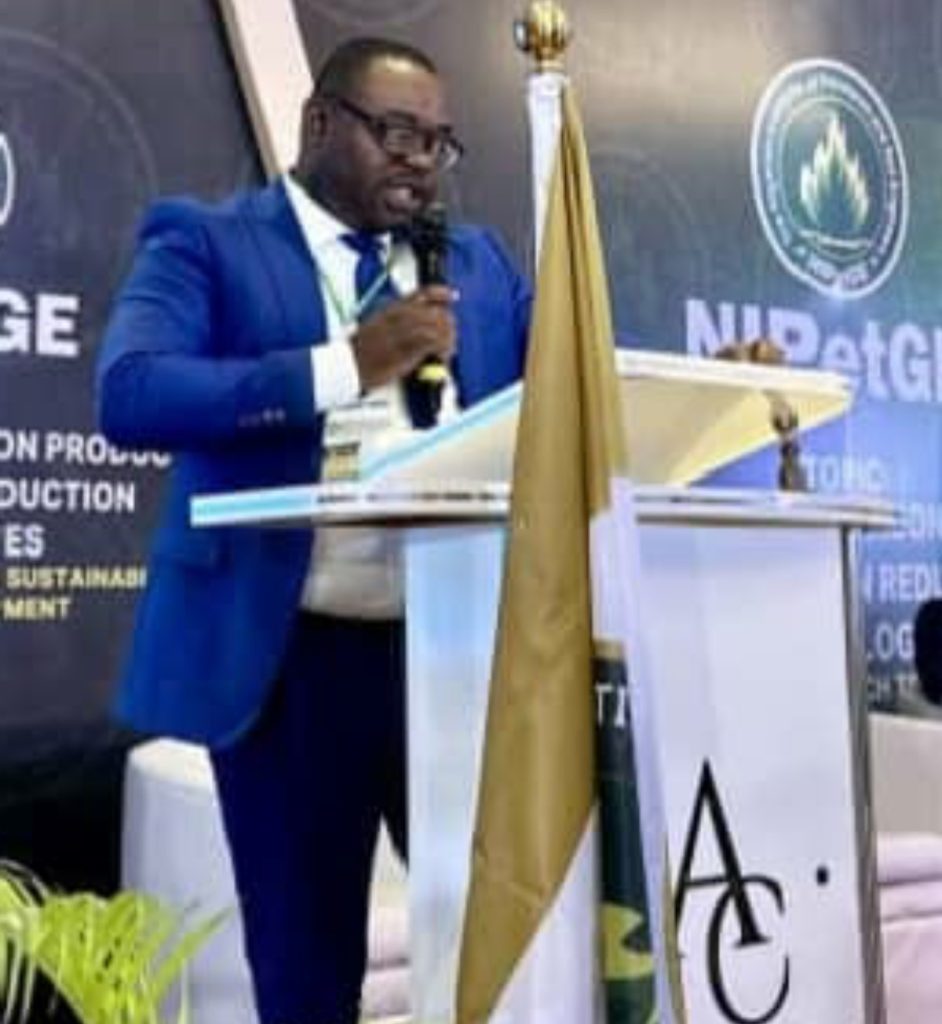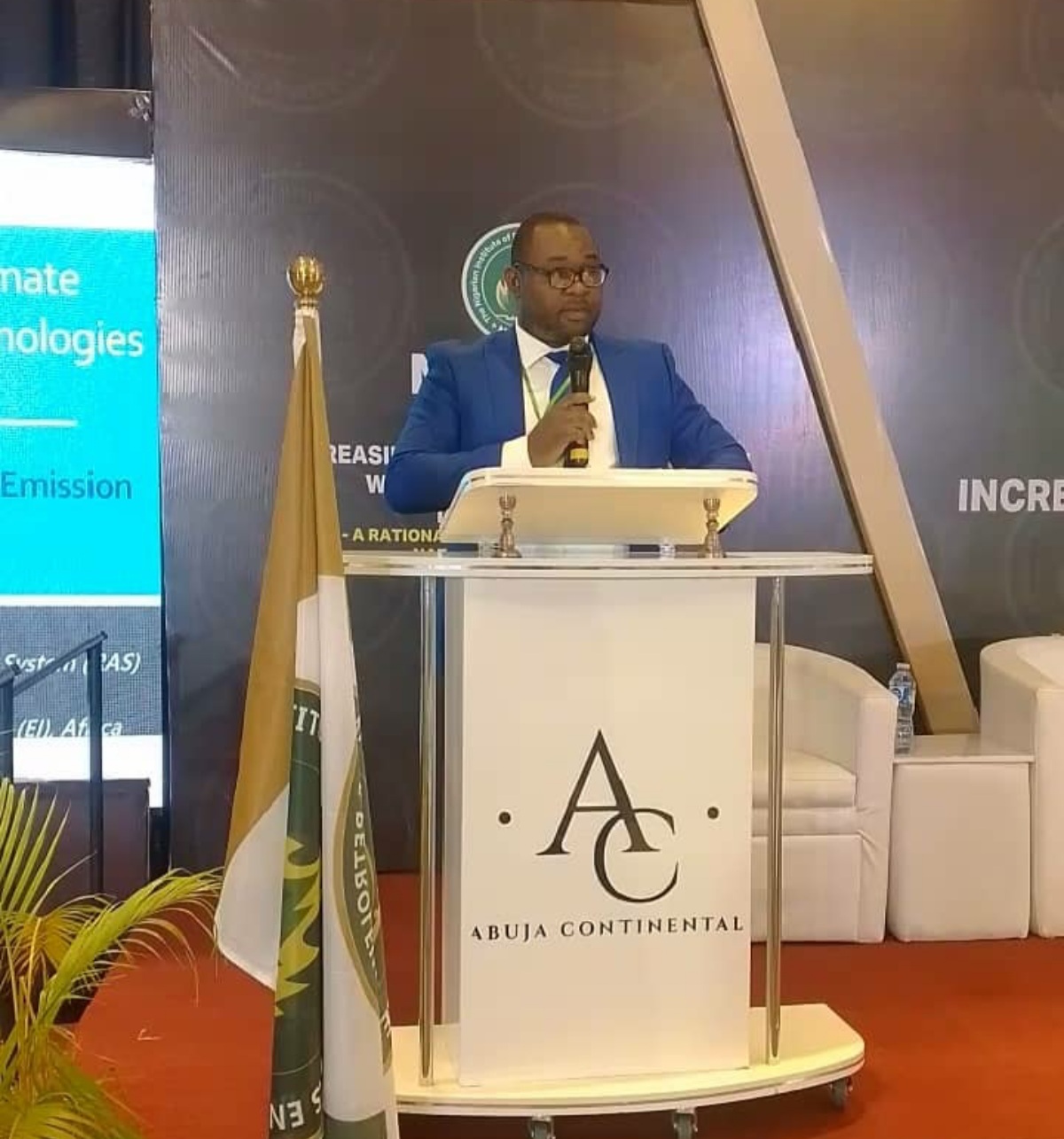Eur. Ing. Dr. Chinedu Ogwus, Regional Director, Africa (Robotics and Autonomous Systems – RAS), Society of Petroleum Engineers International (SPEi), delivered a groundbreaking paper and a thought-provoking presentation that underscored both technical excellence and visionary leadership at the Institution of Petroleum and Gas Engineers Conference, held at the prestigious Continental Hotel, Abuja.
Presenting a paper titled “The Use of Robots to Reduce Emissions in Oil and Gas for Sustainable Climate Energy,” Dr. Ogwus articulated a compelling case for the integration of robotics, artificial intelligence, and intelligent automation as critical instruments for reducing emissions, enhancing operational safety, and driving sustainable transformation across Africa’s oil and gas landscape.
The high-level gathering attracted industry leaders, innovators, policymakers, and senior executives from across Nigeria’s oil and gas value chain, converging to examine how intelligent technologies can redefine industrial operations, reduce emissions, and advance climate-resilient energy systems.
In his address, Ambassador Dr. Ogwus affirmed that Artificial Intelligence (AI) and robotics have evolved from theoretical potential to practical imperatives, serving as the new backbone of modern energy operations. He noted that intelligent automation now dictates how exploration data is analyzed, how risks are managed, and how efficiency and environmental stewardship coexist within the complex dynamics of oilfield operations.

Drawing on global innovations, Dr. Ogwus referenced the TotalEnergies ARGOS Robot Project, which exemplifies how robotic systems are simplifying complex operations, reducing human exposure to hazardous environments, and cutting emissions through precision monitoring. He projected that by 2030, oil and gas platforms could be fully managed by coordinated fleets of autonomous robots — setting new benchmarks in operational safety, reliability, and emission control.
Speaking to a cross-section of industry leaders, innovators, and policymakers, Dr. Ogwus explained that the integration of intelligent robotic systems marks a new phase in the drive toward sustainable energy production. He noted that robotics is reshaping field operations by improving precision, reducing emissions, and minimizing human exposure to risk.
According to him, four key categories of robots are leading this transformation. Drones now perform aerial inspections of pipelines and installations, delivering real-time imagery for faster decision-making. Quadruped robot dogs navigate hazardous sites to collect data in areas unsafe for humans. Process control robots autonomously monitor and operate systems to ensure steady performance, while detection units equipped with infrared cameras and methane sensors identify gas leaks with high accuracy.
He revealed that continuous robotic surveillance could reduce methane emissions by up to 90 percent, drastically lowering carbon intensity while improving worker safety and regulatory compliance. Through intelligent automation, high-risk inspections and maintenance tasks can now be executed with minimal human exposure, significantly advancing occupational safety and operational reliability.
Expanding on the growing role of AI, Dr. Ogwus underscored how digital intelligence is powering smarter oilfield operations — from well log analysis, geophysical mapping, and seismic data interpretation, to reservoir characterization, predictive maintenance, and enhanced oil recovery.
He noted that AI-driven systems are revolutionizing exploration by integrating real-time analytics with machine learning, enabling predictive insights that reduce downtime, prevent leaks, and optimize field performance.
“These advancements,” he remarked, “are reshaping not just how we produce energy, but how we preserve our planet in the process.”
In a stirring conclusion, Amb. Dr. Ogwus called on industry leaders, innovators, and policymakers to embrace digital transformation with vision and urgency.
“Let’s accelerate digital transformation across upstream and downstream operations.
Foster public–private partnerships to scale intelligent solutions.
Invest in capacity building to equip our workforce with future-ready skills.
And align our strategies with both national and global climate goals.”
He stressed that adopting robotics and AI is not merely a path to modernization, but a strategic imperative for ensuring sustainability, competitiveness, and long-term energy security in an evolving global economy.
As the conference concluded, participants commended Dr. Ogwus’s presentation as a clarion call for technological foresight and climate-conscious leadership. His insights reinforced a collective resolve among stakeholders to harness AI, robotics, and clean technology as instruments for a greener, safer, and more competitive energy future.
